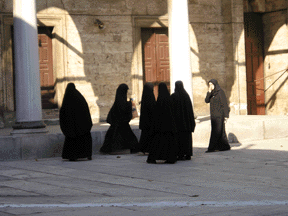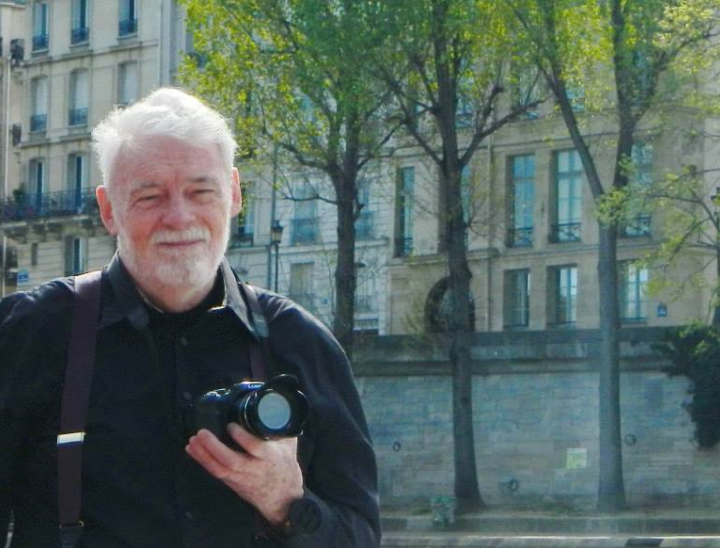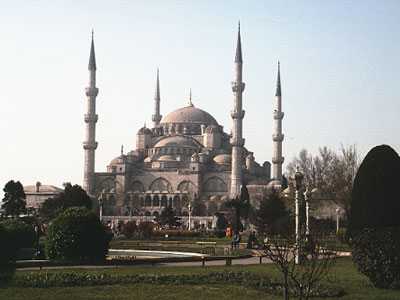JAMES C. RYAN, Ph.D.
[Letterhead Redacted]
20 July 2010
The Honorable Barack H. Obama
President of the United States
The White House
1600 Pennsylvania Avenue NW
Washington, DC 20500
USA
Dear Mr. President:
Truth is still on the march in Turkey; the lies and treachery of the present government are in plain sight. But justice is dead. You westerners have killed it by your support of the AKP regime of Recep Tayyip Erdoĝan. Mr. President, you recently referred to so-called democracy in Turkey as a “Muslim Democracy.” Religion and democracy don’t go together, Mr. President. And you, above all people, should know it. You spoke so glowingly about Mustafa Kemal Atatürk in the Turkish Grand National Assembly in May 2009. When you speak of Atatürk and democracy in the same breath, as you did, you must always emphasize three words—SECULAR, SECULAR, SECULAR.
This is my fourth letter to you since your inauguration, one every six months. I have yet to receive the courtesy of the slightest acknowledgement of their receipt by the White House. I know if the letters had contained threats to you, your secret service agents would have knocked my door down in the middle of the night. I also know that when I sent you campaign contributions in 2008 I received not only e-mail thank-yous, but an international telephone call from your headquarters to verify that I was a valid international contributor. Is this what defines your administration’s standards of courtesy and openness, Mr. President, money? I hope not, but I think so. But perhaps you have read my letters but acknowledging them brings you embarassment because you have so thoroughly embraced the AKP regime. So be it, Mr. President. But what about common courtesy?
So-called “democracy” remains in critical condition in Turkey. Forget Erdoĝan’s pathetic antics about Gaza. Forget about his cozy relations with Iran, Sudan and other gangster “Islamic” regimes. They are of utmost embarrassment to the Turkish people but mean nothing compared to the civilian coup that he has engineered. Like Hitler in the thirties, all was done under the veil of “democracy.” And under that same veil, the jails are bursting with leftists opposed to the brutality of the Erdoĝan regime. Where Hitler used the SA brownshirts to do his dirty work, Erdoĝan hides behind the veils and headscarves of his AKP women. Turkey’s highest court ruled that Erdoĝan and his party are the center of anti-secular activities against the Turkish nation. In America that would be called treason. Like Hitler, Erdoĝan has destroyed the legal system by packing the courts with his own judges and prosecutors.
You should be particularly worried to know that the Turkish army has been completely compromised by a hoax called Ergenekon. Not only does Erdoĝan now have the police force and the gendarmes, he has the army too. And you are now well aware of the trigger-happy, loud-mouthed incompetence of the Turkish prime minister in the foreign affairs arena. Turkey is on the march, BACKWARDS, to the gloriously incompetent days of the Ottomans. This is what your gloriously incompetent CIA along with numerous gloriously treasonous Turks have accomplished. Erdoĝan and his ilk champion this as some Islamic rennaissance. This is utter nonsense.
If you read the books I sent to you with my first letter you know this. The only “enlightenment period” was due entirely to one man, Mustafa Kemal Atatürk. Described and defamed as just “another ruthless general” in a recent article in the lamentable Economist, Atatürk used the energy generated by the Turkish War of Independence (1919-1923) to lift Turkey from the Middle Ages mentality of the Ottomans to modern times, and in many ways beyond. For example, he gave women the right to vote in 1930 and to stand for election in 1934, decades before many European countries (France, Italy, Greece, Switzerland). It is this grand achievement, by history’s most remarkable soldier-statesmen-educator, that has been destroyed by Erdoĝan and his fellow Islamo-fascist thugs. And these same thugs, who publicly proclaim women’s inferiority to men, bring their bizarrely dressed wives to receive warm welcomes in the White House.
Oh the horror wrought by American support! A heart of darkness envelopes Turkey, Mr. President: extrajudicial wiretapping and surveilance, unconstitutional imprisonments, the trashing of human rights protections, wanton abuse of press freedom protections, corruption and theft by the ruling AKP of epic proportion, and the destruction of the Turkish army. No wonder the Economist magazine feels free to debase Atatürk. Good job, all you westerners. Bad job, Mr. President.
But there is a force rising, Mr. President. And there are many, many Turks who refuse to take the garbage dealt to them by the AKP over the past seven years. And the force is energized by the words of Kemal Atatürk. You may not know or remember them Mr. President, but you should mark them well. As I told you in my earlier letters, I remind you again. The day of reckoning is coming. The day is near. Read his words, they describe Turkey today:
You, the Turkish youth! Your primary duty is to forever protect and defend Turkish independence and the Turkish Republic. This is the mainstay of your existence and of your future.
This foundation is your most precious treasure in the future, as well, there may be malevolence, within and abroad, which will seek to deny your birthright. If one day you are compelled to defend your independence and the republic, you shall not reflect on the conditions and possibilities of the situation in which you find yourself, in order to accomplish your mission. These conditions and possibilities may appear unfavorable. The adversaries who scheme against your independence and your Republic may be the representatives of a victory without precedent in the world. By force or by ruse, all citadels and all arsenals of our dear fatherland may have been taken; all of its armies may have been dispersed and all corners of the country may have been physically occupied. More distressing and more grievous than all these, those who hold and exercise the power within the country may have fallen into gross error, blunder, and even treason. These holders of power may have even united their personal interests with political ambitions of the invaders. The nation itself may have fallen into privation, and may have become exhausted and desolate.
You, the future sons and daughters of Turkey! Even under such circumstances and conditions, your duty is to redeem Turkish independence and the Republic! The strength you shall need exists in the noble blood flowing through your veins.
Mustafa Kemal Atatürk
From The Great Speech
20 October 1927
Mr. President, in the above speech, Mustafa Kemal Atatürk gave his heirs, the Turkish people, the right, indeed the duty, to defend the principles of Atatürkian democracy. Not Moderate Islamic democracy! Not Muslim democracy! Just democracy, Mr. President, the same kind of democracy as yours.
Yes, there is a force rising, Mr. President. There is a new Kemal rising, Mr. President. You should know this, Mr. President. And you should know him. On election day he will throw the treasonous AKP into the Mediterranean as the older Kemal did to the western occupiers. You and America would be wise to abandon your support for the current Islamo-fascist government and, for once, leave Turkey alone. Or you better know how to swim in deep, turbulent waters.
With my deep respect,
James C. Ryan, Ph.D.
Istanbul, Turkey
PS My previous three letters and a brief bio are attached.
CEM RYAN
[Turkish Translation Follows]
TÜRKÇE ÇEVİRİSİ
20 Temmuz 2010
Saygıdeğer Barack H. Obama
Amerika Birleşik Devletleri Başkanı
Beyaz Saray
1600 Pennsylvania Avenue NW
Washington, DC 20500
ABD
Sayın Cumhurbaşkanı:
Gerçek hala marş halindedir Türkiye’de; şimdiki hükümetin yalan ve ihanetleri açıkça görülmektedir. Fakat adalet öldü. Siz batılılar öldürdünüz onu, Recep Tayyip Erdoğan’ın AKP rejimini destekleyerek. Sayın Cumhurbaşkanı, geçenlerde Türkiye’deki sözde demokrasiyi “Müslüman Demokrasi” diye adlandırdınız. Din ve demokrasi beraber olmaz sayın Cumhurbaşkanı. Ve siz, herkesten önce, bunu bilmelisiniz. Mayıs 2009’da Türkiye Büyük Millet Meclisi’nde Mustafa Kemal Atatürk hakkında övgüyle konuştunuz. Yaptığınız gibi, Atatürk ve demokrasiden aynı anda bahsederken, her zaman üç sözcüğü vurgulamanız gerekir: LAİKLİK, LAİKLİK,LAİKLİK
Cumhurbaşkanlığı görevinize başladığınızdan bu yana, her altı ayda bir olmak üzere, bu size yazdığım dördüncü mektubum. Beyaz Saray’dan mektuplarımın alındıklarına dair, nezaketen de olsa, henüz en ufak bir bilgi almış değilim. Biliyorum, eğer mektuplar size yönelik tehdit içerselerdi, sizin gizli ajanlarınız gece yarısı kapımı çalarlardı. Ve gene biliyorum ki, 2008’de size seçim kampanyası için bağış gönderdiğimde, sadece elektronik postayla teşekkürler değil, aynı zamanda sizin merkezlerden uluslararası geçerli bir destekleyici olduğumu kanıtlamak amacıyla uluslar arası telefonlar aldım. Sizin yönetiminizin nezaket ve açıklık standartlarını tanımlayan bu mudur, Sayın Cumhurbaşkanı? Umarım değil, ama ben öyle düşünüyorum. Belki de mektuplarımı okudunuz ama onları aldığınızı kabul etmek size mahcubiyet verecektir çünkü AKP rejimini öyle sıkıca kucaklamışsınız ki! Öyle olsun, Sayın Cumhurbaşkanı! Fakat sıradan nezakete ne oldu?
Sözde “demokrasi” Türkiye’de kritik bir durumdadır. Bırakın Erdoğan’ın Gazze hakkındaki hazin davranışlarını. Bırakın İran, Sudan ve diğer gangster ister “İslamî” rejimlerle samimi ilişkilerini. Bunlar Türkler için son derece utanç verici fakat yapılmakta olan sivil darbeyle mukayese edildiğinde bunların hiç bir anlamı yok. Otuzlardaki Hitler gibi, yapılan her şey “demokrasi” kılıfı altındadır. Ve aynı kılıf altında hapishaneler Erdoğan’ın gaddar rejimine muhalefet eden solcularla dolup taşmaktadır. Hitler kirli işlerini yaptırmak için kahverengi gömlekli SA’larını kullanırken, Erdoğan da kendi AKP’li kadınlarının örtü ve türbanlarının arkasına saklanmaktadır.Türkiye’nin en yüksek [Anayasa] mahkemesi Erdoğan ve partisinin Türk milletine karşı laiklik karşıtı eylemlerin odağı olduğuna hükmetti. Buna Amerika’da vatan hainliği denir. Hitler gibi, Erdoğan da kendi hakim ve savcılarını mahkemelere doldurarak hukuk sistemini çökertti.
Özellikle bilmeniz gerekir ki Türk ordusu Ergenekon denilen bir komplo ile ciddi olarak zayıflatılmıştır. Şimdi Erdoğan sadece polis gücü ve jandarmaya değil, orduya da hakim olmuştur. Ve şimdi Türk başbakanının dışişlerinde her yere şiddetle saldırmak için eli tetikte olan ve ağzı kalabalık beceriksizliğinin de iyice farkındasınızdır. Türkiye marş halindedir, GERİYE DOĞRU, Osmanlı’nın şanlı-şöhretli yetersiz günlerine doğru. Bu sizin şanlı-şöhretli yetersiz CIA’nızın sayısız şanlı-şöhretli hain Türklerle birlikte başardıklarıdır.Erdoğan ve taifesi bunu İslamî Rönesans olarak savunuyorlar. Bu tamamiyle saçmalıktır.
Eğer size ilk mektubumla birlikte gönderdiğim kitapları okuduysanız bunu bilirsiniz. Tek “aydınlanma dönemi” tamamiyle bir Tek Adam, Mustafa Kemal Atatürk’ten sayesindedir. Acınası Ekonomist dergisindeki yeni bir makalede “bir diger insafsız general” diye tanımlanmış ve karalanmış olan Atatürk, Türk Ulusal Bağımsızlık Savaşı’ndan (1919-1923) ortaya çıkmış olan enerjiyi Türkiye’yi Osmanlı’nın Ortaçağ zihniyetinden modern çağlara ve birçok bakımdan daha da ötesine taşımak için kullanmıştır. Mesela, 1930’da kadınlara seçme hakkını ve 1934’te de seçilme hakkını vermiştir, birçok Avrupa ülkesinden (Fransa, İtalya, Yunanistan, İsviçre) on yıllarca önce. İşte, tarihin en olağanüstü asker-devlet adamı-eğitimcisi tarafından gerçekleştirilmiş bu muhteşem başarı, Erdoğan ve onun İslamo-faşist çete arkadaşları tarafından ortadan kaldırılmaktadır. Ve kadının erkekten aşağıda olduğunu açıkça ilan eden bu aynı çete, garip şekilde giyinmiş eşlerini nezaket ve içtenlikle karşılanmak üzere Beyaz Saray’a getirirler.
Ah, Amerikan desteğiyle gelen dehşet! Karanlığın yüreği Türkiye’yi sarıyor, Sayın Cumhurbaşkanı: mahkeme kararı olmadan yapılan dinlemeler ve takipler, anayasaya aykırı tutuklamalar, insan haklarının tahribi, basın özgürlüğünün ahlaksızca ihlali, iktidardaki AKP’nin büyük miktarlardaki yolsuzluk ve hırsızlıkları, ve Türk ordusunun yıpratılması. Ekonomist dergisinin Atatürk’ü aşağılamak hakkını kendinde görmesi sürpriz değil. Aferin, siz tüm batılılara. Kötü iş, Sayın Cumhurbaşkanı.
Fakat yükselen bir güç var Sayın Cumhurbaşkanı. Geçen yedi yılda AKP’nin onlara vermeye çalıştığı çöpü almayı reddedecek daha çok, bir çok Türk var. Ve bu güç Kemal Atatürk’ün sözlerinden enerji alıyor. Onları bilmiyor ya da hatırlamıyor olabilirsiniz, Sayın Cumhurbaşkanı, fakat onlara iyice dikkat etmelisiniz. Daha önceki mektuplarımda size söylemiş olduğum gibi, size tekrar hatırlatıyorum. Hesap günü geliyor. Gün yakındır. Atatürk’ün sözlerini okuyun, bugünkü Türkiye’yi tanımlıyorlar:
Ey Türk Gençliği!
Birinci vazifen, Türk istikllini, Türk Cumhuriyetini, ilelebet, muhafaza ve müdafaa etmektir. Mevcudiyetinin ve istikbalinin yegane temeli budur.
Bu temel, senin, en kıymetli hazinendir. İstikbalde dahi, seni, bu hazineden mahrum etmek isteyecek, dahili ve harici, bedhahların olacaktır. Bir gün, istiklal ve Cumhuriyeti müdafaa mecburiyetine düşersen, vazifeye atılmak için, içinde bulunacağın vaziyetin imkan ve şeraitini düşünmeyeceksin! Bu imkan ve şerait, çok namüsait bir mahiyette tezahür edebilir. İstiklal ve Cumhuriyetine kastedecek düşmanlar, bütün dünyada emsali görülmemiş bir galibiyetin mümessili olabilirler. Cebren ve hile ile aziz vatanın kaleleri zaptedilmiş, bütün tersanelerine girilmiş, bütün orduları dağıtılmış ve memleketin her köşesi bilfiil işgal edilmiş olabilir. Bütün bu şeraitten daha elim ve daha vahim olmak üzere, memleketin dahilinde iktidara sahip olanlar gaflet, dalalet ve hatta hıyanet içinde bulunabilirler. Hatta bu iktidar sahipleri şahsi menfaatlerini, müstevlilerin siyasi emelleriyle tevhit edebilirler. Millet, fakr ü zaruret içinde harap ve bitap düşmüş olabilir.
Ey Türk istikbalinin evladı! İşte, bu ahval ve şerait içinde dahi vazifen, Türk İstiklal ve Cumhuriyetini kurtarmaktır. Muhtaç olduğun kudret, damarlarındaki asil kanda mevcuttur.
Mustafa Kemal Atatürk
Nutuk’tan
20 Ekim 1927
Sayın Cumhurbaşkanı, yukarıdaki söylevde Mustafa Kemal Atatürk varislerine, Türk Milletine, Atatürk demokrasisinin ilkelerini savunma hakkını, doğrusu görevini vermiştir. Ilımlı İslam demokrasisinin değil! Müslüman demokrasi değil! Sadece demokrasi, Sayın Cumhurbaşkanı, sizin demokrasinizle aynı olan.
Evet, bir güç yükseliyor, Sayın Cumhurbaşkanı. Yeni bir Kemal yükseliyor, Sayın Cumhurbaşkanı. Bunu bilmelisiniz, sayın Cumhurbaşkanı. Ve O’nu tanımalısınız. Seçim günü hain AKP’yi Akdenize dökecektir, aynı Gazi Mustafa Kemal’in batılı işgalcilere yaptığı gibi. Sizin ve Amerika’nın şimdiki İslamo-faşist hükümeti desteklemeyi bırakmanız akıllıca olur, bir kez olsun, Türkiye’yi rahat bırakın. Ya da derin sularda, çalkantılı sularda yüzmesini bilseniz iyi olur!
Derin saygılarımla,
James C. Ryan, Ph.D.
İstanbul, Türkiye
Not: önceki üç mektubum ve kısa bir öz geçmişim ilişiktedir.
Published in Turkish by Aydınlık Dergisi
1 Ağustos 2010
AMERİKALI BARIŞ GÖNÜLLÜSÜ OBAMA’YI UYARDI
Hesap günü geliyor, AKP’yi destekleme artık!
CEM RYAN






